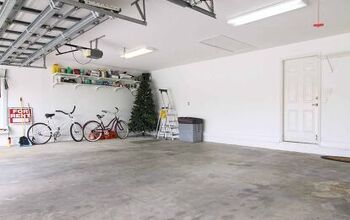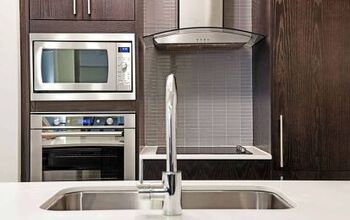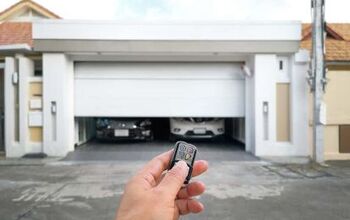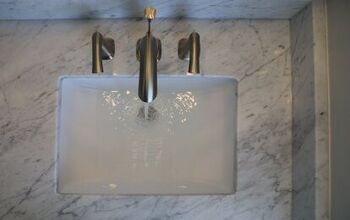Are You Wasting Time On Over-Organizing?

A well-organized space makes life easier and keeps your home tidy, but when is it enough? What exactly does it mean to be organized? Do you have to have matching bins, detailed categories, and precise labels, or do you just need to know where your stuff is?
Organizing looks different for everyone, but anyone can overdo it. Constant tweaking, using excessive systems, and perpetually buying storage solutions are signs of over-organizing. Spending too much time arranging your space could lead to reduced productivity and more stress. Ironically, these are two of the main reasons most people organize their homes in the first place.
Believe it or not, it’s possible to waste time on organizing. But how do you know the difference between what’s helping and what’s not necessary? Well, that’s unique to you, but there are a few common tip-offs.
What Is Over-Organizing?
If you’re struggling to grasp how something can be over-organized, consider this example. You clean out your closet, get rid of anything you don’t need, and only organize what’s left. So far, so good. You put the items back into the closet in a way that makes it easy for you to access what you need when you need it. You know where everything is, it looks nice, and it’s super functional. At this point, you can call the project a success and move on with life.
However, you don’t stop there. You over-organize, continuing to work on the closet for another 8 hours.
You buy a complete set of matching baskets, hangers, and containers for all of your items. You put each pair of shoes into its own clear, acrylic shoebox. (Even though you know you’re not the type to hassle with that every time you want to wear the shoes.) Your closet now looks absolutely stunning, like a picture straight off Home Edit’s Instagram. However, it’s now organized in a way that doesn't actually fit your habits.
You have to go through several steps to get the items you want instead of just being able to grab them. Now here’s the kicker — the next day, you do it all over again. In this example, you’ve over-organized your space, wasting time in the process, and set yourself up to repeat the cycle.
Over-Organizing Looks Different For Everyone
It’s worth noting that everyone has different organizing styles. You may be content with broader categories and prefer things out in the open, so you can locate them more quickly. Alternatively, you might be the type that needs an uber-organized, micro-sorted closet that hides everything.
If so, it might take you longer to create a space that is how you need it to be, which is fine. Taking longer to finish the job doesn’t automatically mean you’re over-organizing. Basically, over-organizing is doing anything above and beyond what you need to do to make a space function its best for you. The main takeaway is that if a space truly functions well for you, then it’s fine. There’s no need to do anything more to it simply to match someone else’s idea of perfect organization.
Signs You’re Over-Organizing
There’s often a fine line between being organized and over-organizing, and it’s important to realize that organizing mistakes happen. In a nutshell, organizing too much typically includes implementing excessive systems, constant tweaking, and repetitive rearranging. You spend more time pursuing perfection than productivity. Here are common signs that you may be spending more time than necessary on organizing your home:
- You spend more time organizing your space than doing other tasks.
- Even when a space works well, you reorganize it because it makes you feel productive.
- If items aren’t arranged perfectly, you feel anxious, so you keep readjusting them.
- You’re constantly buying containers, cute organizers, and storage solutions, even though you have no plan for them.
- You decide to reorganize a closet or your cabinets just to recreate a look you saw on Pinterest or some home-organizer influencer’s page.
Why Do People Over-Organize Their Spaces?
You may over-organize your home because the process makes you feel productive. Others do it because it gives them an illusion of control over their environment. Perfectionism is another reason a lot of people overdo home organization, desiring everything to look flawless. You might obsess over highly organized spaces you see on TikTok or other social sites. You’re responding to a strong urge to make your home look the same way.
In some cases, over-organizing is counterintuitive. People usually organize spaces to be more productive. However, when it comes to over-organizing, it distracts you from the tasks you should be doing, and leads to procrastination.
The Drawbacks Of Too Much Home Organizing
Think about organizing like exercise. You know exercise is good for you, but there’s such a thing as doing too much. (You know the whole shpiel about consulting your doctor before beginning any exercise program?) If you do more than your body can handle, you could end up injuring yourself or worse. Now apply the same concept to organizing.
Organizing your house has many benefits, and you should strive to maintain a tidy, comfortable, peaceful home. However, if you go overboard, you could end up doing more harm than good.
- Too much organizing leads to wasted time managing systems that don’t actually sync with your daily habits.
- When you implement excessive organizational tools, it can add more choices to your day, leading to decision fatigue.
- If you obsess over constant organization, you limit creativity.
- Buying storage containers, labels, and fancy bins that you don’t actually need wastes time and money.
- Devoting time to unnecessary organizing takes away time from other tasks, decreasing productivity.
- You’re never actually satisfied or content with your home, always feeling like there’s something that could be better.
- All of the above could actually contribute to higher stress levels instead of reducing stress.
Stay Grounded When You’re Organizing Your Home
Put away the Pinterest page and stop scrolling on Amazon for stackable shelves. First, assess your home’s current level of organization to see if you actually need to work on anything or if it’s good to go. This isn’t to say once you organize a space, it’s done forever. Good organization will always require a bit of maintenance and some adjusting here and there. However, occasional tidying is a lot different from a complete overhaul every other day. Use these guidelines to keep you grounded when you’re organizing.
- Focus on function over form when it comes to organization.
- Implement systems that support how you live and do things instead of working against them.
- Embrace “good enough” instead of perfection.
- Declutter before you organize.
- Don’t purchase any storage solutions until you have a plan for organizing your space.
- Start small, simplifying one system at a time, beginning with a junk drawer or the pantry instead of the garage.
- Focus on things that make your life easier, not prettier.
- Set a timer to keep you on track, so tasks that should take you 10 minutes don’t end up lasting an hour.
A Well-Organized Home Doesn’t Have to Look Perfect
A home doesn’t have to look Pinterest-perfect to be well-organized. What really makes a space function well is organization that makes your life easier. Plus, what works for you won’t work for someone else, which is why there are different ways to organize spaces.
The key is knowing when you’ve achieved your ideal level of organization in your home. If it functions well, supports your lifestyle, and makes you more productive and less stressed, that’s good organization. There’s no need to keep going, because anything beyond that risks wasting time, money, and effort. Therefore, let go of perfection, focus on function, and create a space that feels comfortable and inviting. Your life shouldn’t revolve around organizing. Rather, organizing your home should be about making life easier so you can live it.
Related Guides:
- Small Space Living: 13 Design Tips For Maximizing Every Square Inch
- Tips For Organizing When You're Overwhelmed
- How Long Before Your New House Feels Like Home?

Stacy Randall is a wife, mother, and freelance writer from NOLA that has always had a love for DIY projects, home organization, and making spaces beautiful. Together with her husband, she has been spending the last several years lovingly renovating her grandparent's former home, making it their own and learning a lot about life along the way.
More by Stacy Randall














![10 Best Electric Lawn Mowers - [2022 Reviews & Top Rated Models]](https://cdn-fastly.upgradedhome.com/media/2023/07/31/9070486/10-best-electric-lawn-mowers-2022-reviews-top-rated-models.jpg?size=350x220)












